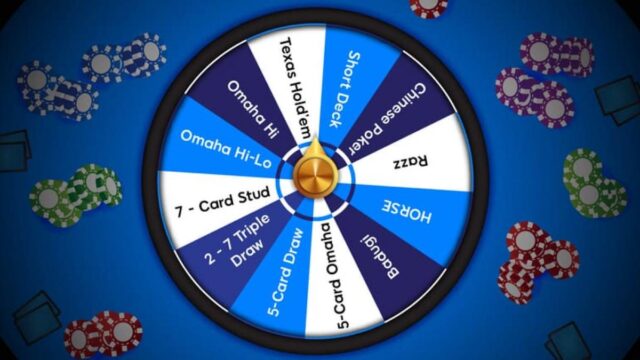
Becoming an intermediate poker player involves mastering the game of poker, with a particular emphasis on key considerations in Texas Hold’em. This variation of poker requires skill, strategy, and an understanding of position, chip management, and reading opponents.
Bluffing is an important technique that intermediate players should learn, as it can be a powerful tool when used correctly. Regular practice and study are essential to enhance skills, including analyzing opponents’ tells, understanding different poker variations, and effectively managing one’s bankroll. By honing these skills, players can advance to the intermediate level and improve their game.
Developing a Solid Poker Strategy ─ Key Considerations for Intermediate Players

Mastering Texas Holdem ─ Advancing Your Poker Skills to the Intermediate Level
In the world of poker, Texas Holdem reigns supreme as one of the most popular and widely-played variations of the game. As an aspiring intermediate player, it is essential to have a complete understanding of the rules and hand rankings in poker. This knowledge forms the foundation upon which you can build your poker skills and strategies.
Texas Holdem is a community card game where players strive to make the best five-card hand using a combination of their own hole cards and the community cards on the table. Familiarize yourself with the different hand rankings, ranging from the high card to the royal flush, to gain a competitive edge and make informed decisions during gameplay.
Once you have a firm grasp of the rules, it’s time to dive into the complexities of developing a solid poker strategy. For intermediate players, it is crucial to consider various factors such as position, hand selection, and player tendencies. By analyzing these aspects, you can make better decisions on when to bet, raise, fold, or even bluff. Continuously honing your strategy will enable you to navigate the unpredictable waters of poker with confidence and skill.
Mastering the Art of Bluffing in Poker ─ Techniques and Tips
Developing a solid poker strategy is crucial for intermediate players. It involves understanding the game’s intricacies such as the rules, hand rankings, and betting strategies. Knowing when to fold, call, or raise is essential for maximizing chances of winning.
Additionally, paying attention to opponents’ behavior and poker tells can provide valuable insights. Managing bankroll effectively is also important to avoid unnecessary losses.
The Importance of Bankroll Management for Intermediate Poker Players

Bluffing is a crucial skill for intermediate poker players as it can provide a significant advantage at the table. To bluff effectively, it is important to analyze opponents’ psychology and betting patterns. Bluffing at the wrong time can have disastrous consequences, so considering factors like timing is essential.
Bluffing too often or too early makes the strategy predictable while bluffing late with higher stakes can force opponents to fold. It is also important to observe opponents’ weaknesses, such as their betting patterns and body language, to exploit them effectively. Maintaining a consistent betting pattern enhances the effectiveness of bluffs by making it harder for opponents to read intentions.
In summary, mastering the art of bluffing in poker is vital for intermediate players. By understanding opponents’ psychology, timing bluffs correctly, and observing gameplay closely, the chances of bluffing successfully are greatly increased.
Analyzing and Exploiting Opponents ─ Reading Poker Tells
Effective bankroll management is a vital skill for intermediate poker players. In order to succeed in the game, players must establish a budget for their poker activities and adhere to it. It is important to determine how much money can be comfortably lost without impacting daily life, as poker involves both skill and luck.
Setting guidelines for the amount of risk one is willing to take on a single game or session is also recommended. Experienced players suggest not wagering more than 5% of the total bankroll on any given hand to avoid losing the entire bankroll in one game. Continuously monitoring and evaluating the bankroll is crucial, as it allows for the identification of trends and informed decision-making.
In conclusion, while bankroll management may not be the most glamorous aspect of poker, it plays a crucial role in long-term success. By implementing a disciplined and responsible approach to handling one’s bankroll, players can navigate the unpredictable nature of the game, minimize losses, and increase their chances of succeeding in the long run.
Evaluating the Different Poker Variations ─ Which One Suits You Best?

Regular practice and study are essential for enhancing your skills as a poker player. By dedicating yourself to regular practice sessions, you can refine your skills and gain a deep understanding of the game. Additionally, studying different strategies and techniques through reading books, watching videos, and analyzing professional players’ gameplay can provide valuable insights and help you approach different situations in new ways.
Regular practice is crucial for developing consistency and improving decision-making abilities. Participating in online poker games or joining local poker clubs can offer opportunities to test your skills against different opponents and learn how to handle various scenarios. By continuously challenging yourself, you can become more adept at making effective decisions.
By committing to regular practice and study, you can take your poker skills to the next level. As an intermediate player, it is important to continuously strive for improvement and constantly refine your strategies. With dedication and a strong work ethic, you can become a formidable opponent at the poker table.

The text emphasizes the importance of understanding the rules and hand rankings in Texas Holdem poker for intermediate players. It suggests that knowing the rules not only helps in navigating the game smoothly but also assists in making better decisions.
The next step mentioned is developing a solid poker strategy, taking into account factors like position, hand strength, and opponent behavior. The text highlights that a well-thought-out strategy greatly improves the chances of winning and maximizing profits.
The art of bluffing is deemed crucial, requiring observation, intuition, and timing. Effective bluffing can be a powerful tool to win pots that would otherwise be lost.
Furthermore, the text emphasizes the importance of bankroll management to avoid excessive betting and financial losses. Finally, evaluating and exploiting opponents by reading poker tells is considered a skill that separates average players from successful ones.
In conclusion, becoming an intermediate poker player requires a combination of knowledge, strategy, and skill. Understanding the rules, developing a solid poker strategy, mastering bluffing, managing bankroll effectively, and evaluating and exploiting opponents are all highlighted as key considerations for intermediate players. Practice and continuous improvement are promoted as ways to enhance one’s chances of success in poker.







